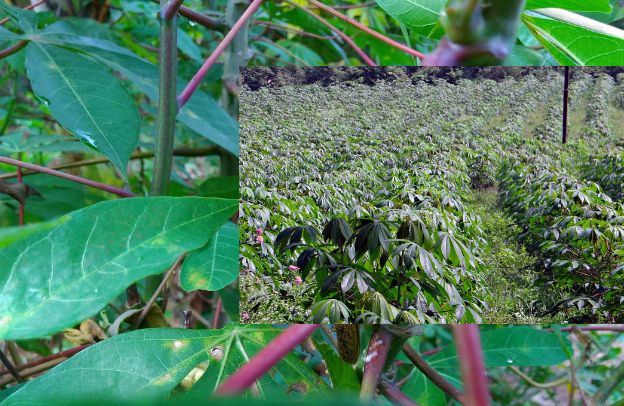The Economic Value of Cassava Farming in Nigeria: Opportunities and Challenges

Imagine a future where small and medium-scale farmers in Nigeria are no longer struggling to make ends meet, where food security is not just a dream but a reality, and where the country’s economy is thriving. This future is possible, and it begins with investing in one of Nigeria’s most valuable crops – cassava.
With its numerous applications and high demand, cassava farming presents a significant opportunity for Nigerian farmers to increase their income, reduce poverty, and promote economic growth.
Cassava farming is an important agricultural practice in Nigeria, contributing significantly to the country’s economy. Cassava is a staple food in Nigeria and is used in the production of several other products, including starch, flour, ethanol, and animal feed.
In this article, we will explore the economic value of cassava farming in Nigeria, the opportunities available to small and medium-scale farmers, the challenges they face, and strategies for improving cassava farming in Nigeria.
Economic Value of Cassava Farming in Nigeria
Cassava farming is a significant contributor to Nigeria’s Gross Domestic Product (GDP), with the crop accounting for about 10% of the country’s agricultural output. The cassava industry in Nigeria has grown in recent years due to increased demand for cassava products both locally and internationally.
The global demand for cassava products is projected to continue to grow in the coming years, presenting an opportunity for Nigerian farmers to increase their earnings.
Job creation is another significant economic value of cassava farming in Nigeria. The cassava value chain involves several stages, including planting, harvesting, processing, and marketing.
Each of these stages creates employment opportunities, from farmers who plant and harvest the crop to processors who turn the raw cassava into finished products.
Opportunities in Cassava Farming
There are several opportunities available to small and medium-scale farmers in Nigeria who want to invest in cassava farming. One of these opportunities is the availability of arable land for cassava cultivation.
Nigeria has over 80 million hectares of arable land, with only a fraction of it currently being utilized for agriculture. This presents an opportunity for farmers to expand their cassava farms and increase their yields.
The Nigerian government also provides support programs and policies aimed at improving cassava farming in the country. These programs include the Cassava Transformation Agenda and the Agricultural Transformation Agenda, which provide funding, training, and infrastructure to cassava farmers.
Value addition and diversification are also important opportunities in cassava farming. Farmers can add value to their cassava by processing it into different products, such as cassava flour, chips, and starch. This can help farmers earn more from their cassava crops and also create new markets for their products.
Challenges facing Cassava Farming in Nigeria
Despite the opportunities available in cassava farming, Nigerian farmers also face several challenges. One of these challenges is pests and diseases affecting cassava cultivation.
Cassava crops are susceptible to several pests and diseases, including cassava mosaic disease, cassava brown streak disease, and cassava mealybug. These diseases can significantly reduce yields and income for farmers.
Access to financing is another challenge facing cassava farmers in Nigeria, especially small and medium-scale farmers. Most financial institutions are reluctant to lend to farmers due to the perceived high risk associated with agriculture. This limits farmers’ ability to expand their farms, purchase equipment, and invest in new technologies.
Inadequate infrastructure and market access are also present challenges for cassava farmers in Nigeria. Poor road networks and storage facilities make it difficult for farmers to transport their cassava to markets, resulting in post-harvest losses.
Strategies for Improving Cassava Farming in Nigeria
To improve cassava farming in Nigeria, farmers, and other stakeholders must adopt modern farming practices. This includes using improved cassava varieties, good agricultural practices, and modern technologies like precision agriculture.
Collaboration among stakeholders in the cassava value chain is also crucial. Farmers, processors, marketers, and policymakers must work together to address the challenges facing cassava farming in Nigeria. This includes investing in research and development of cassava varieties that are resistant to pests and diseases and have higher yields.
Cassava farming is an essential agricultural practice in Nigeria that offers significant economic value and opportunities for small and medium-scale farmers. Despite the challenges facing cassava farming in Nigeria, there are several strategies that farmers and other stakeholders can adopt to improve the industry’s productivity and profitability.
Opportunity for small and medium-scale farmers in Nigeria
Investing in cassava farming presents a significant opportunity for small and medium-scale farmers in Nigeria. With the right support, modern farming practices, and collaboration among stakeholders, Nigerian farmers can tap into the global demand for cassava products and improve their livelihoods.
The government and private sector should also prioritize investments in cassava farming, infrastructure, and research and development to further unlock the industry’s potential.
Contribute to food security in Nigeria
Moreover, cassava farming can also contribute to food security in Nigeria. As a staple food, cassava provides an affordable and nutritious source of carbohydrates for millions of Nigerians. By increasing cassava production, farmers can help address the country’s food security challenges and reduce the country’s reliance on imported food products.
To fully realize the potential of cassava farming in Nigeria, farmers must also prioritize value addition and diversification. This involves processing cassava into different products, such as flour, chips, and starch, which can be sold locally and internationally. Value addition can increase the income of cassava farmers and create new markets for their products.
In addition, the government and private sector can invest in the development of infrastructure and market access for cassava farmers. This includes building good road networks, storage facilities, and processing plants in rural areas where cassava is cultivated. Improved market access will help farmers sell their products at better prices and reduce post-harvest losses.
Conclusion on The Economic Value of Cassava Farming in Nigeria: Opportunities and Challenges
In conclusion, cassava farming presents a significant economic opportunity for small and medium-scale farmers in Nigeria. However, farmers must adopt modern farming practices, collaborate with other stakeholders in the value chain, and prioritize value addition and diversification to maximize their earnings.
With the right support, cassava farming can help reduce poverty, increase food security, and promote economic growth in Nigeria.





